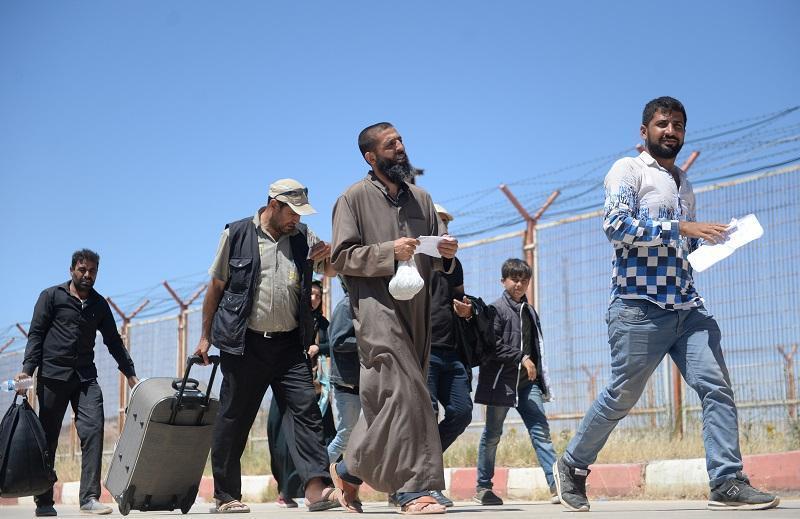
Turkish Foreign Minister Mevlüt Çavuşoğlu has said Ankara hopes a 3 billion-euro aid payment to Turkey by the European Union would be delivered without delay, after EU member states approved the second tranche of the payment during a summit in Brussels.
He has criticized the EU for failing to provide it with the financial aid agreed upon in a 2016 migrant deal in which Turkey cut the passage of migrants into the bloc to a trickle, asking for an accelerated practice in the delivery of the second batch of the aid.
The first 3 billion-euro batch, which should’ve been delivered by 2016, is yet to be handed to Turkey, the minister said in a televised interview on June 29.
“Hopefully they will take lessons from the problems and bureaucracy of the first part and they will implement more quickly this time,” he said.
His comments came after a crucial meeting of EU leaders in Brussels where they struggled to overcome deep divisions on migration at a tense EU summit that dragged into the early morning hours of June 29 before yielding vague pledges to strengthen external borders, explore new migrant centers and give Turkey the second tranche of 3 billion euros for Syrian refugees.
In March 2016, the EU and Turkey reached an agreement to stop irregular migration through the Aegean Sea, and improve the conditions of more than 3 million Syrian refugees in Turkey.
The EU had pledged 6 billion euros ($7.44 billion) in funding for the refugees, and promised to mobilize the second 3 billion-euro ($3.72 billion) tranche by the end of 2018.
Merkel said Turkey has done a lot for more than 3 million Syrian refugees it has hosted since the beginning of the Syrian civil war.
On June 28, Italy had raised objections to releasing the additional 3 billion euro aid.
The Italian government demanded stronger solidarity from its EU partners regarding migration.
“The European Council agrees on launching the second tranche of the Facility for Refugees in Turkey [...],” the summit conclusions said.
Turkey hosts some 3.5 million Syrians, more than any other country in the world. Ankara says it has spent around $25 billion helping and sheltering refugees since the beginning of the Syrian civil war.
Ankara doesn’t expect positive steps
Turkey does not believe positive steps will be taken with the European Union during Austria’s term this year, the minister said, accusing the current prime minister of being an extremist, despite having relatively good relations with the Austrian foreign minister.
“We spoke at length with the Austrian foreign minister, but unfortunately, the current chancellor is even more extreme than the far-right party,” he said.
Çavuşoğlu said he does not expect positive steps on opening new chapters for Turkey’s EU accession bid, but will discuss visa liberalization and updating the Customs Union agreement with the bloc would be discussed with EU officials.
“There are areas where we can work together, but opening chapters or not is a political issue. We expect better cooperation in the next term, once Austria’s presidency is over,” he said.
Austria will take over the rotating six-month presidency of the European Union in July, giving it an important say in setting the agenda at many meetings between member states.
Relations between Turkey and Austria have been strained in recent months over a host of issues, including Vienna’s stance towards migrants and its opposition to Ankara’s technically ongoing, but effectively all but collapsed, EU membership bid.
Austrian Chancellor Sebastian Kurz’s conservatives are in a coalition government with the anti-Islam Freedom Party, making Austria the only western European country to have a far-right party in government. Both parties believe the European Union should break off Turkish accession talks.